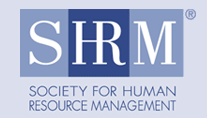Redesigning and Redefining Work for the 21st Century
Over the last half century, the composition of our workforce has undergone tremendous transformation. Women have flooded into the paid labor force, more households are made up of duel earners, more people are continuing to work well into later life, and millennials have arrived on the scene. Despite significant changes in who works, companies and organizations have not adapted to these new realities by changing how work gets done. To harness the full potential of the labor force, we need to redesign workplaces so that they are better aligned with the lives of the people who work in them, and redefine what makes a good and successful employee so that performance is no longer measured by how many hours employees put in but by how effective and efficient employees can be.
The When Work Works Sessions at the SHRM Annual conference explore ways to #ReinventWork and create effective workplaces. Visit WhenWorkWorks.org, a partnership between Families and Work Institute and SHRM, for more information.
Shelley J. Correll

Shelley Correll is professor of sociology and organizational behavior at Stanford University and the Barbara D. Finberg Director of the Clayman Institute for Gender Research. Her expertise is in the areas of gender, workplace dynamics and organizational culture. She has received numerous national awards for her research on the “motherhood penalty,” research that demonstrates how motherhood influences the workplace evaluations, pay and job opportunities of mothers. She is currently leading a nationwide, interdisciplinary project on “redesigning work” that evaluates how workplaces structures and practices can be better aligned with today’s workforce. She is also studying how gender stereotypes and organizational practices affect the entry and retention of women in technical professions and how the growth of the craft beer industry affects the founding and success of women brewers. Correll consults on reducing stereotypic biases in the workplace and speaks to professional groups interested in advancing women’s leadership.
Find Sessions by Day
Find Sessions by Speaker
- MEGA SESSION: 24-7-365 When Aren't You HR?
- MEGA SESSION: Business Skills for the Business Partner
- MEGA SESSION: Effective Communication in a Tech-Driven, Device Savvy World
- MEGA SESSION: Enjoy the Ride
- MEGA SESSION: Extreme Makeover: Orientation and Onboarding Edition
- MEGA SESSION: Leading Organizational Excellence by Avoiding the Top 10 HR Leadership Mistakes
- MEGA SESSION: Leading Up: How to be on Top of Your Game When You’re Leading the Boss
- MEGA SESSION: Reality-Based Rules of the Workplace
- MEGA SESSION: The Six Elements of Strategic Thinking: A Common Framework for Developing Strategic Leaders
- MEGA SESSION: Top 10 Persuasive Communication Strategies: Making Your Message Heard and Unforgettable
- SHRM Board Chair Bette Francis
- SHRM CEO Hank Jackson

